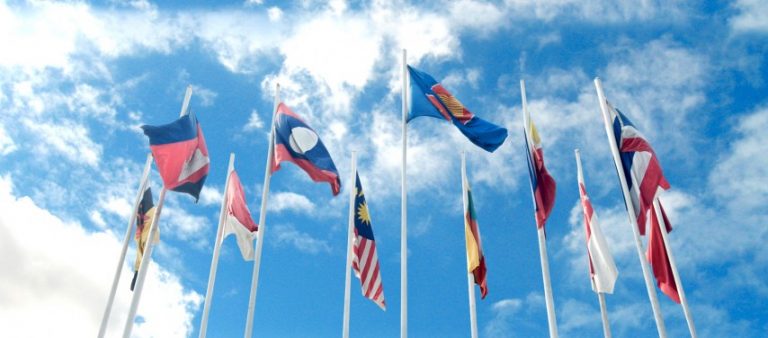ASEAN Environment Ministers met at the 8th Informal ASEAN Ministerial Meeting on the Environment on the 13 October 2004, to review and enhance cooperation on regional environmental issues. The ASEAN Environment Ministers also met their counterparts from the People’s Republic of China, Japan and the Republic of Korea at the 3rd ASEAN Plus Three Environment Ministers’ Meeting on 14 October 2004, to further enhance environmental cooperation within the framework of ASEAN Plus Three Cooperation.
Dr. Yaacob Ibrahim, Minister for the Environment and Water Resources, Singapore, in his Welcome Remarks, emphasized the importance for ASEAN member countries to collectively pursue ASEAN’s goals of achieving sustainable development, as set forth in the ASEAN Vision 2020. In view of the challenges faced by member countries and the increasing transboundary nature of environmental problems, he urged member countries to intensify and enhance cooperation to address these challenges. Minister Yaacob Ibrahim also urged ASEAN member countries to continue to work collectively to realise the Hanoi Plan of Action, which will end this year, and in making sure that the next medium term plan known as the Vientiane Action Programme will further guide ASEAN towards achieving environmental sustainability and the ASEAN Vision 2020. Minister Yaacob Ibrahim also stressed on the need for ASEAN to strengthen environmental cooperation with the People’s Republic of China, Japan and the Republic of Korea, by learning from and sharing of their best practices.
The Ministers discussed, among others, the implementation of the ASEAN Agreement on Transboundary Haze Pollution, following its entry into force on 25 November 2003. The Ministers commended the ASEAN Specialised Meteorological Centre for providing ASEAN member countries with timely and informative regional weather reports and forecasts. The Ministers noted the possibility of weak El Nino developing towards the end of the year and early 2005, which may result in drier conditions in the region. The Ministers agreed on the need to remain vigilant and stressed on the importance of taking preventive measures such as stepping up the surveillance, monitoring and enforcement.
The Ministers also exchanged views on environmental sustainability challenges in the areas of clean air, clean water and clean land. The Ministers discussed various proposals to promote environmentally sustainable cities in ASEAN including the Conference on Environmentally Sustainable Cities to be held on 14-15 October 2004 in Singapore among ASEAN city managers. The Ministers encouraged more ASEAN best practices to be highlighted.
The Ministers discussed member countries’ experiences in developing standards or benchmarks to monitor the performance of member countries in achieving environmental sustainability. The Ministers agreed that performance indicators should be scientifically developed based on objective criteria. However, the Ministers suggested that these performance indicators should be translated into impact indicators that are easily understood by the public.
The Ministers endorsed the ASEAN Agreement on the Establishment of the ASEAN Centre for Biodiversity and agreed to expedite the signing of the Agreement.
The Ministers supported the establishment of the ASEAN Environment Fund and agreed to explore the modalities for setting up the Fund.
The ASEAN Ministers also held fruitful discussions with their counterparts from the People’s Republic of China, Japan and the Republic of Korea. The Ministers shared and exchanged information on national and regional cooperation among ASEAN and the Plus Three countries. The ASEAN Ministers expressed appreciation on the current substantial cooperative activities, especially on the consultation visits organised by the Plus Three countries to share their experience on environmental management with the ASEAN countries. The Ministers recognised the synergy of the environmental cooperation among ASEAN Plus Three countries and noted the need to enhance cooperation through more substantial environmental programmes and activities.
